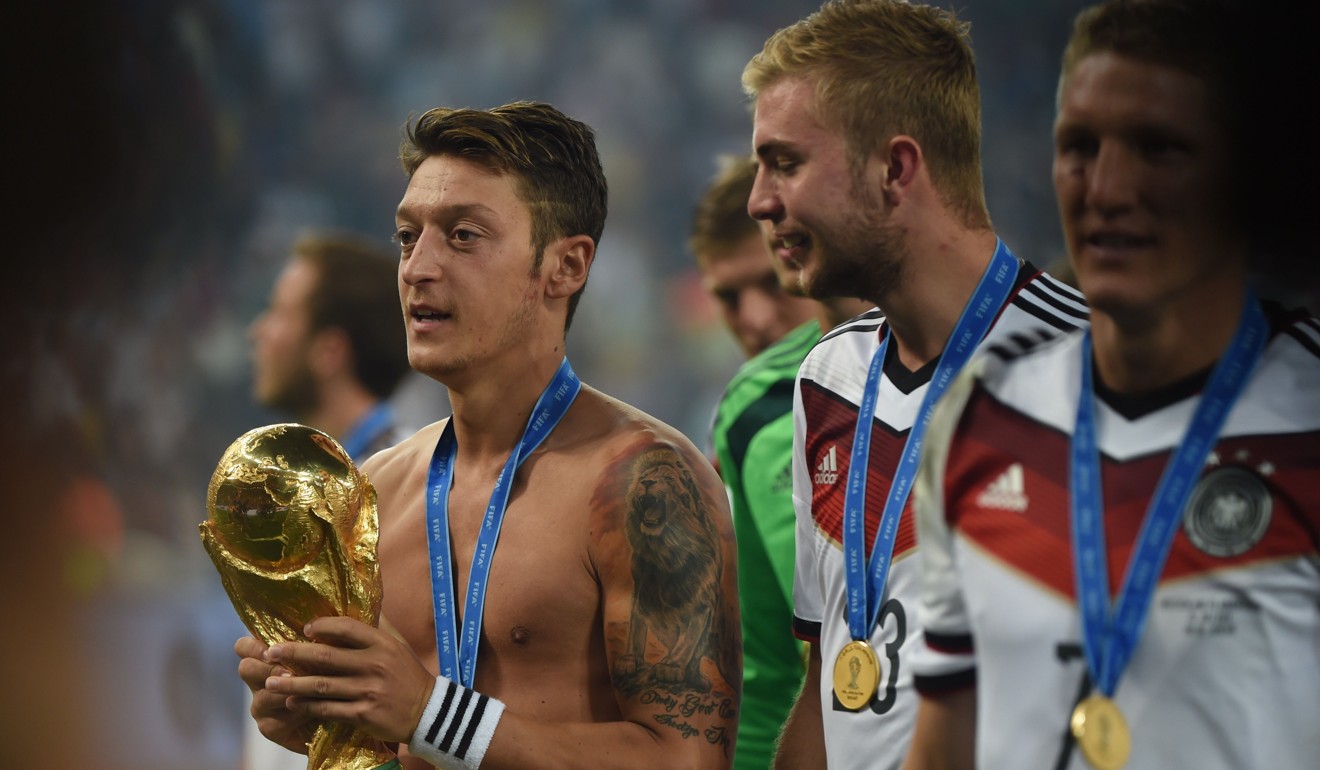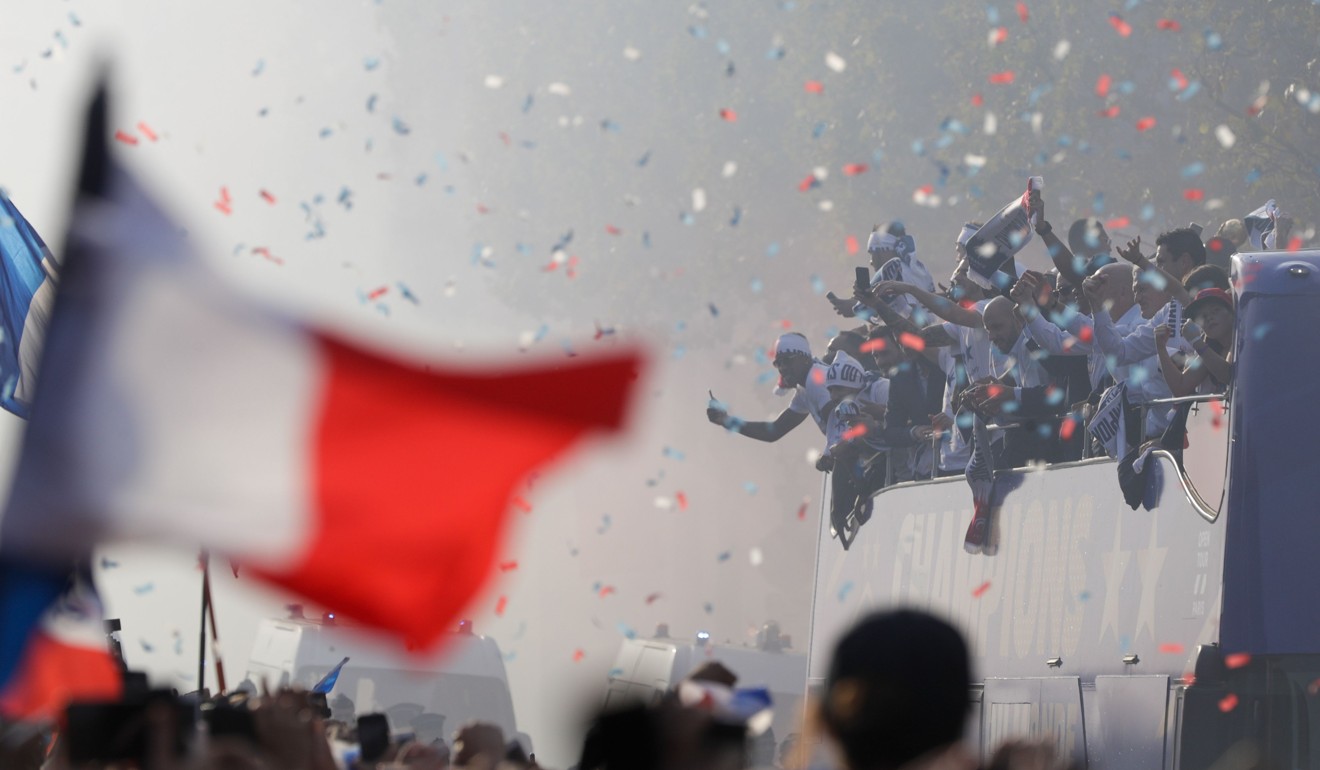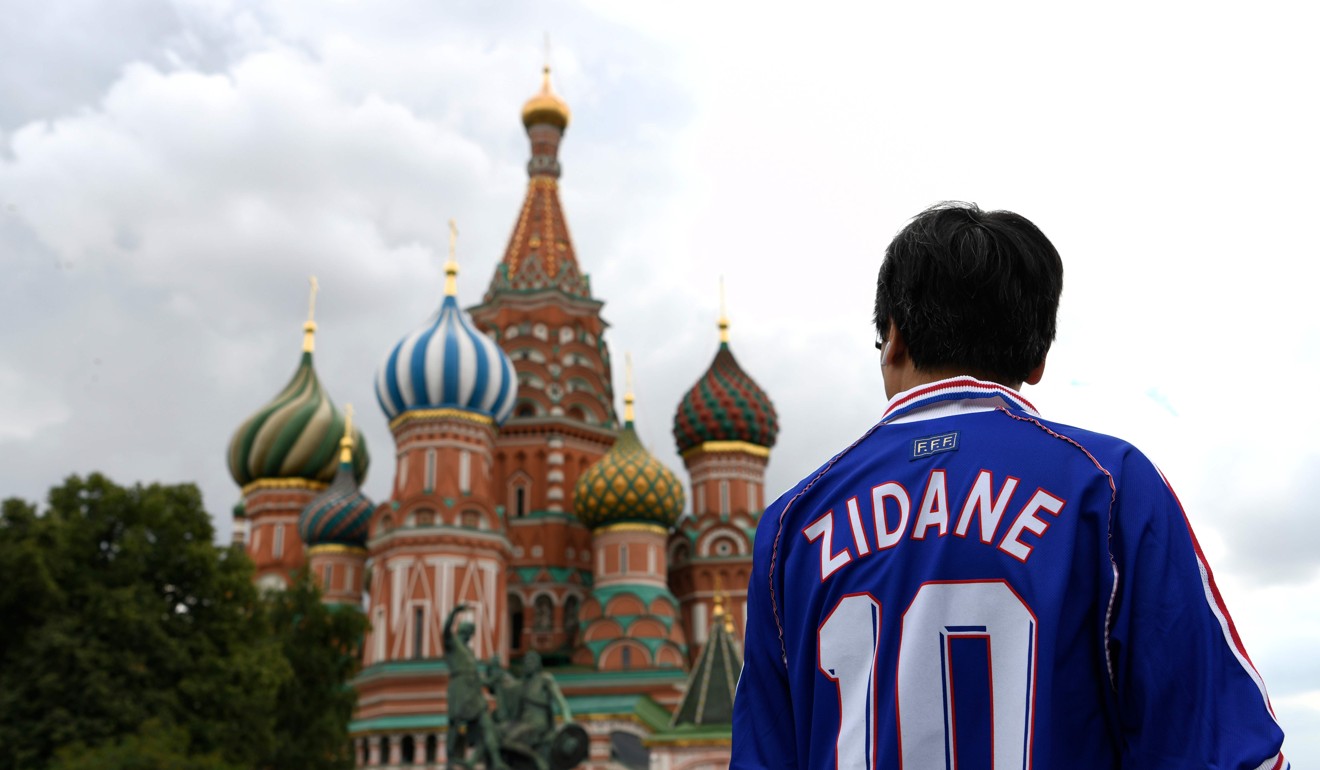
Racism in football: how France’s World Cup success and Germany’s win in 2014 hint at China’s football future
Migration means that millions more players are potentially eligibly to pull on a red shirt but Mesut Ozil proves it is not all plain sailing
Tormented Arsenal midfielder Mesut Ozil’s week got a little better on Friday.
The former German international was with his club in Singapore as part of their International Champions Cup duty – they were in the city to play Atletico Madrid, a game they eventually lost on penalties – and while Ozil skipped the action, he was welcomed with open arms.
“Thanks to the Gunners in Singapore for showing so much love tonight,” the 29-year-old tweeted, accompanying a picture of him greeting the crowd at the National Stadium.

Scapegoated for Germany’s failings, the Gelsenkirchen-born son of Turkish immigrants decided enough was enough and called time on his career with the 2014 World Cup winners amid a race storm about whether he was German or Turkish.
It should not matter – Germany is a country that allows dual citizenships – but it clearly does.
When it comes to race and nationality, it’s a tinderbox of emotions.
Ozil captured it best: “If we win, I’m German. If we lose, I’m not.”
Germany lost this summer.
Some of those young men in the German squad, Ozil included, won the World Cup four years ago in Brazil and were feted by the folks at home on their return.
That party included Poland-born Lukas Podolski and Miroslav Klose, half-Ghanaian Jerome Boateng, son of Albanian immigrants Shkodran Mustafi and half-Tunisian Sami Khedira alongside Ozil.
None of that heritage was questioned when Die Mannschaft turned into the Weltmeisters in the Maracana.

However, when they were sent packing by South Korea in Kazan this summer, the German-ness of the players became a problem, amid rumours of a split in the squad between the Bavarians of Bayern Munich and Ozil’s so-called “Bling” gang.
While Germany were licking their wounds, or blaming Ozil for everything, depending on their views, neighbours France were readying themselves for a game against Argentina.
Two teams from either side of the Atlantic but united in the sense that they are the products of immigration. France largely from the diaspora, Argentina from Europeans who migrated to South America.
France won the game, going on to play Belgium in the semi-final, another European team woven from rich tapestry of migration. (Fellow semi-finalists England had a similar story).
When France eventually won the World Cup, putting national identity, immigration and race on the front page.

There was a similar thing when the France team of 1998 won the World Cup, the Black-Blanc-Beur team of Sub-Saharan African, European and North African heritage that showed a vision of a new tricolor for a modern France.
Identity is a minefield and one that is easier to negotiate when you win, but a question that is likely to come up more and more in the future, especially in Asia.
Japan notably played Allesandro Santos, a naturalised Brazilian, and Indonesia and the Philippines have both called on players that they have granted citizenship – Qatar’s handball team is the most egregious example.
Hong Kong’s representative team has long been a microcosm of the world city but north of the border it’s been a very different story – but for how long?
Since China’s opening up some 30-odd years ago, there has been an influx of foreigners to the mainland and of Chinese going overseas.
As you might expect that has led to an increase in the number of children who might be considered as Chinese until they get to the point where their parents have to pick a passport.
For all that the world sees a billion Han Chinese, China is already ethnically diverse and it’s only going to become more so in the future.
The legal system at the moment, where a hukou (household registration) is vital, means that good footballers are falling through the gaps when they are blocked from playing games.
A recent Nike advert predicted that by 2033 China would be the best team in the world and that a Chinese player could replace Cristiano Ronaldo as the best in the world.
“Maybe in the future there will be a Chinese player who can surpass my achievements,” he said in Beijing, “although it is very hard, it is possible.”
Perhaps it will be Beijing Guoan’s Nebijan Muhmet or CSKA Moscow’s Li Tenglong.
Until the rules surrounding hukou and citizenship change then China is missing out on talent that could rightfully play for the national team – Ireland famously played Tony Cascarino in the belief that he had an Irish grandparent, only finding out later that he was adopted and therefore ineligible.
People may question how a nation that is 90-odd per cent Han would take to a team that was more diverse but one thing is for sure, if they win then questions of race and national identity won’t matter.
In the blur of victory it never does.

